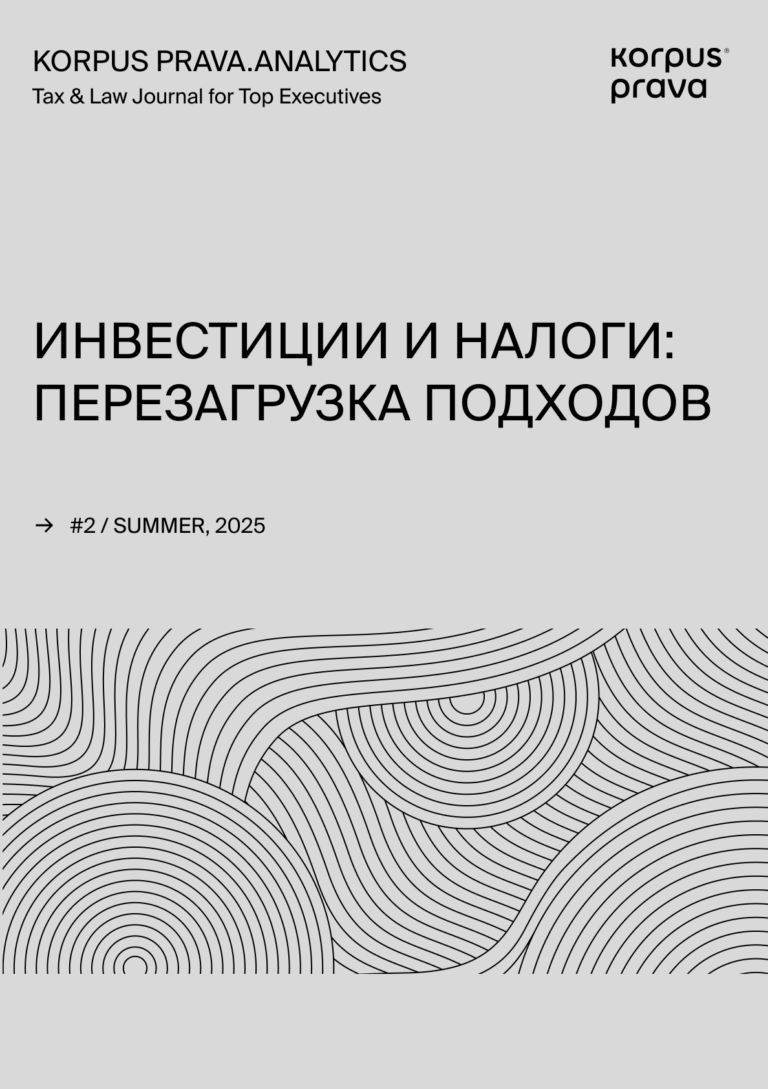Страновая отчетность международных групп компаний: план BEPS по-русски
Организация экономического сотрудничества и развития, или ОЭСР (Organisation for Economic Cooperation and Development, или OECD), утвердила глобальный план противодействия с размыванием налоговой базы и выводом прибыли из-под налогообложения (Base Erosion and Profit Shifting, или BEPS) в 2013 году. Шаги плана с восьмого по десятый включают разработку правил трансфертного ценообразования1 в части нематериальных активов, перемещения рисков и капитала, а также других высокорисковых транзакций. С тех пор вот уже пять лет Россия ведет активную борьбу с размыванием налоговой базы и выводом прибыли из-под налогообложения, пытаясь воплотить в локальном законодательстве закрепленные ОЭСР принципы.
План BEPS в отношении соблюдения принципов рыночности цен по трансфертным сделкам для целей налогообложения включает трехступенчатую систему контроля, которая распространяется как на локальном, так и на международном уровне.

Мастер-файл включает в себя высокоуровневую глобальную информацию о бизнес-процессах внутри международных групп компаний и применяемой ими политике трансфертного ценообразования.
Локальный файл представляет собой подробный отчет о контролируемых сделках, совершенных отдельными компаниями-резидентами конкретной страны, о ценах трансфертных сделок, а также содержит результаты функционального, экономического и финансового анализа, обосновывающих примененные цены по сделкам.
Страновая отчетность – это формальный инструмент контроля над некоторыми международными группами компаний, предполагающий подачу ими специальных годовых отчетов контролирующим органам.
На момент первоначального утверждения плана BEPS в России уже существовало внутреннее законодательство о контроле ценообразования по сделкам между взаимозависимыми лицами2, которое, однако, не предусматривало каких-либо инструментов для международного обмена данными о трансфертных сделках3. Фактически это законодательство охватывало второй уровень контроля – локальный файл. Пытаясь обеспечить максимально эффективный сбор информации, Минфин России выпустил рекомендации по подготовке трансфертной документации4.
С 2018 года в российское налоговое законодательство были внедрены новые нормы, которые должны обеспечить реализацию восьмого-десятого шагов плана BEPS в части, касающейся мастер-файла и страновой отчетности. Для этих целей Налоговый кодекс был дополнен главой 14.4-1 «Представление документации по международным группам компаний».
В закон введено понятие международной группы компаний. Для того чтобы налогоплательщика признали участником такой группы, недостаточно просто иметь взаимозависимых контрагентов за рубежом. Для этого должны выполняться все условия признания группы международной группой компаний:
- Группа составляет консолидированную финансовую отчетность по российскому законодательству или по требованию фондовых бирж.
- В группу входит хотя бы одна организация или структура без образования юридического лица, которая признается налоговым резидентом России или которая действует на территории России через постоянное представительство, и хотя бы одна организация или структура без образования юридического лица, которая не признается налоговым резидентом России или признается таковым, но подлежит налогообложению в отношении предпринимательской деятельности через постоянное представительство за рубежом5.
Российский законодатель постарался вложить в новые нормы дух плана BEPS, поэтому сохранил идею подразделения институтов контроля на три уровня.

Глобальная документация, равно как и мастер-файл из оригинального документа, должна включать в себя информацию о международной группе компаний и ее бизнес-процессах, описывать существенные факты хозяйственной жизни. В глобальной документации излагаются основополагающие принципы распределения функций, рисков и активов в группе компаний и содержатся результаты краткого функционального анализа внутригрупповых сделок6. Эту часть страновой отчетности подает материнская компания группы.
Вопросы, непосредственно касающиеся конкретных участников группы, должны содержаться в национальной документации. В ней анализируются результаты сделок в разрезе отдельных контрагентов и делается вывод о соответствии правил ценообразования по сделкам локальному законодательству. Закон прямо предусмотрел, что этот уровень документации соответствует документации, которая готовилась ранее в соответствии со статьей 105.15 Налогового кодекса7.
Страновой отчет – это дополнительный документ к уже привычному российским налогоплательщикам уведомлению о контролируемых сделках8. Страновой отчет, в отличие от уведомления, должен содержать сведения не только о контролируемых сделках, но и другую финансовую и прочую существенную информацию о своей деятельности. Сведения, указанные в страновом отчете, будут формировать источник автоматического обмена информацией в части трансфертного ценообразования между государствами-членами ОЭСР.
В страновой отчет входят следующие сведения за отчетный период:
- Общая сумма доходов налогоплательщика, в том числе с разбивкой на сумму доходов по сделкам с участниками этой международной группы компаний и сумму доходов по сделкам с другими лицами, в том числе ассоциированными организациями.
- Сумма прибыли (убытка) до налогообложения за отчетный период.
- Суммы исчисленного и уплаченного налога на прибыль организаций.
- Размер капитала на дату окончания отчетного периода.
- Сумма накопленной прибыли на дату окончания отчетного периода.
- Данные о численности работников.
- Величина материальных активов на дату окончания отчетного периода.
- Полный комплекс сведений о каждом участнике международной группы, в том числе с указанием государства (территории), в соответствии с правом которого такой участник учрежден, государства (территории) налогового резидентства и основных видов деятельности каждого участника международной группы компаний9.
Дополнительно российский законодатель фактически разделил страновой отчет на два уровня, один из которых является обязательным для всех организаций, а второй – только для тех, кто не соответствует специально установленным критериям.
Первый уровень – это уведомление об участии в международной группе компаний. Его обязаны представлять все налогоплательщики, которые входят в международные группы компаний, кроме иностранных организаций, которые получают доходы от источников в России без образования постоянного представительства10.
Страновой отчет должны, в первую очередь, подавать налогоплательщики, о которых не подала страновой отчет материнская компания. Вторым условием, говорящим о необходимости подачи странового отчета, является сумма выручки по группе компаний. Отчет подается, если такая выручка превышает 50 миллиардов рублей (для групп, у которых материнская компания находится в России) или другую сумму, установленную законодательством инкорпорации материнской компании11.
Сроки и способы подачи документов, которые закон обязывает готовить для целей контроля трансфертного ценообразования, приведены в таблице:

Обязанность по подаче уведомления об участии в международной группе компаний, глобальной документации и странового отчета возникла уже в отношении отчетного периода 2017 года. За нарушение правил подачи уведомления об участии в международной группе компаний установлен штраф в размере 50 000 рублей12, странового отчета – еще 100 000 рублей13, глобальной документации – также 100 000 рублей14. До 2020 года действует мораторий на привлечение налогоплательщиков к этим видам налоговой ответственности. Это значит, что налогоплательщики не будут привлекаться к ответственности за неподачу отчетности за 2017, 2018 и 2019 годы15.
А вот за нарушение сроков подачи национальной документации ответственность уже действует. Видимо, предполагая, что налогоплательщики уже привыкли готовить трансфертную документацию, законодатель не стал ждать и ввел штраф за непредставление национальной документации (то есть бывшей трансфертной документации в соответствии со статьей 105.15 Налогового кодекса) в размере всё тех же 100 000 рублей уже с 2018 года, то есть с отчетности за 2017 год16. А налогоплательщикам, которые решили сэкономить на ее подготовке, остается только надеяться, что Федеральная налоговая служба обойдет их своим вниманием.
Реакцию бизнес-сообщества, которая наблюдается сейчас повсеместно, можно описать словами Чацкого: «Глядел, и видел, и не верил!»17 Хотя единственный способ подать уведомление об участии в международной группе компаний – электронный, Федеральная налоговая служба разработала формат этого документа только к марту 2018 года. Разработчики программных продуктов для бизнеса до сих пор не обеспечили налогоплательщикам возможность подавать уведомления несмотря на то, что для большинства групп срок их подачи истек еще в начале сентября. О страновом отчете никто, кажется, даже не помнит. Российские участники международных групп компаний, даже понимая, что остается еще три года на то, чтобы включиться в процедуру обмена страновой информацией без штрафов, уже чувствуют себя нарушителями. Стоит признаться, что в настоящее время план BEPS в части трансфертного ценообразования можно считать реализованным в российском законодательстве только на бумаге.
- Под трансфертным ценообразованием понимается ценообразование по сделкам, совершенным между взаимозависимыми лицами, которые в силу тех или иных причин имеют влияние на коммерческие результаты деятельности друг друга.
- Раздел V.I Налогового кодекса Российской Федерации.
- Статья 105.15 Налогового кодекса Российской Федерации.
- Рекомендации по подготовке трансфертной документации сформулированы в Письме ФНС России от 30.08.2012 № ОА-4-13/14433@ «О подготовке и представлении документации в целях налогового контроля».
- Пункт 1 статьи 105.16-1 Налогового кодекса Российской Федерации.
- Статья 105.16-4 Налогового кодекса Российской Федерации.
- Статья 105.16-5 Налогового кодекса Российской Федерации.
- Уведомление заполняется и подается налогоплательщиками, совершившими контролируемые сделки, до 20 мая года, следующего за отчетным, в соответствии со статьей 105.16 Налогового кодекса Российской Федерации.
- Пункт 1 статьи 105.16-6 Налогового кодекса Российской Федерации.
- Статья 105.16-2 Налогового кодекса Российской Федерации.
- Пункт 6 статьи 105.16-3 Налогового кодекса Российской Федерации.
- Статья 129.9 Налогового кодекса Российской Федерации.
- Статья 129.10 Налогового кодекса Российской Федерации.
- Пункт 2 статьи 129.11 Налогового кодекса Российской Федерации.
- Пункт 7 статьи 2 Федерального закона от 27.11.2017 № 340-ФЗ «О внесении изменений в часть первую Налогового кодекса Российской Федерации в связи с реализацией международного автоматического обмена информацией и документацией по международным группам компаний».
- Пункт 1 статьи 129.11 Налогового кодекса Российской Федерации.
- А.С. Грибоедов, «Горе от ума».


